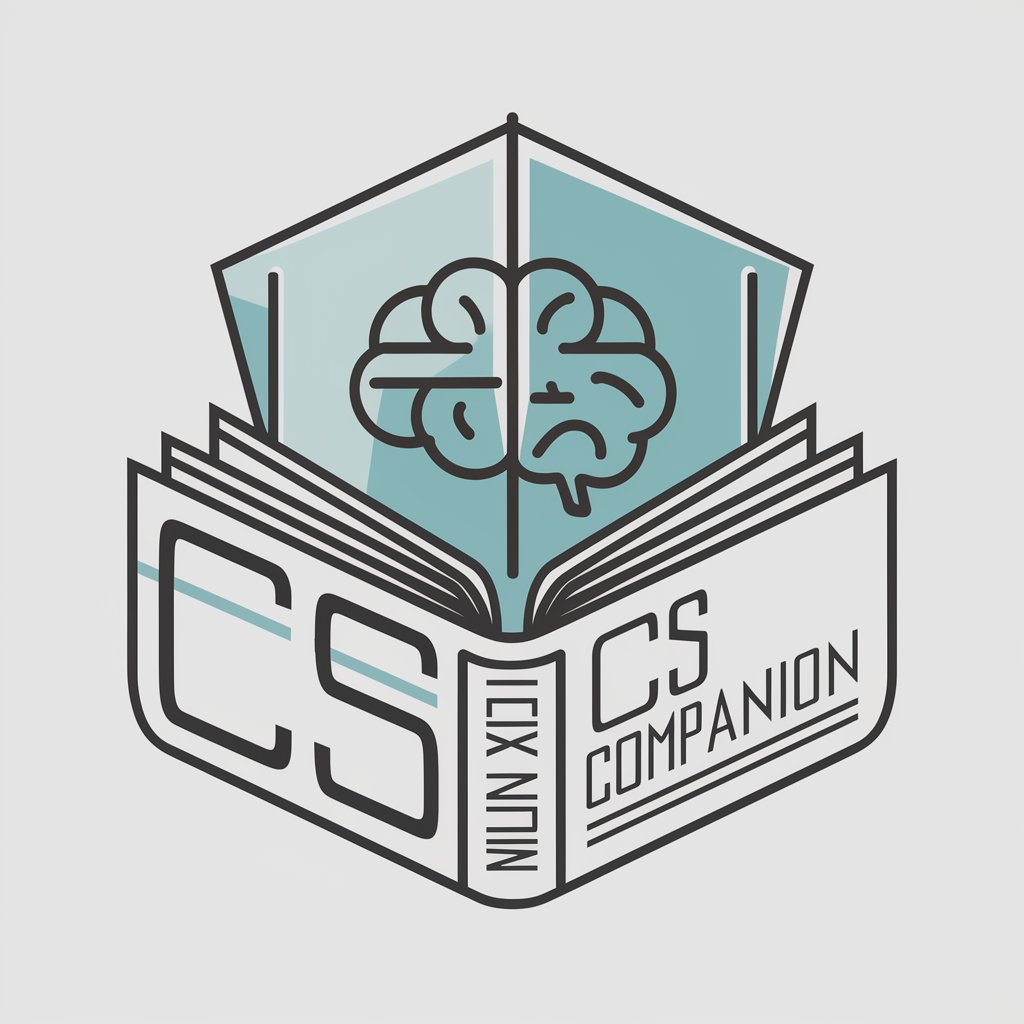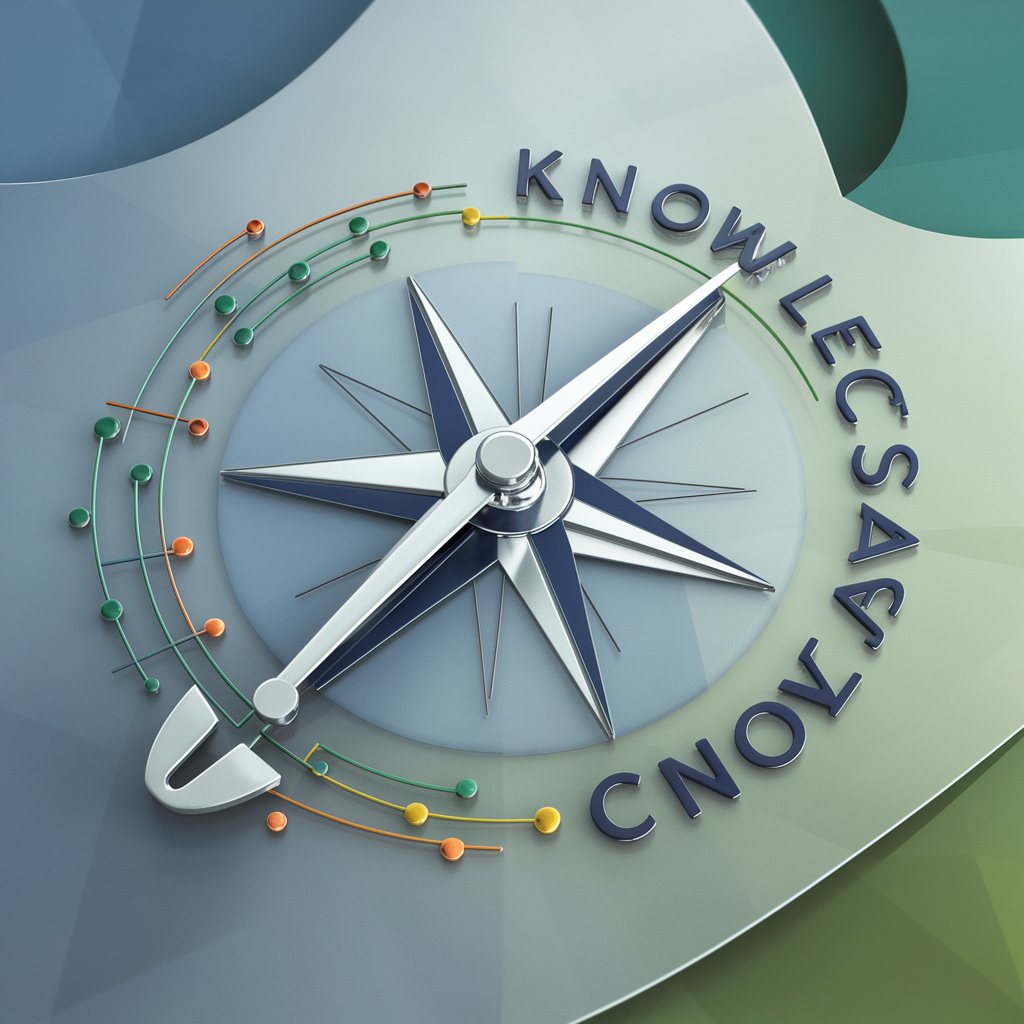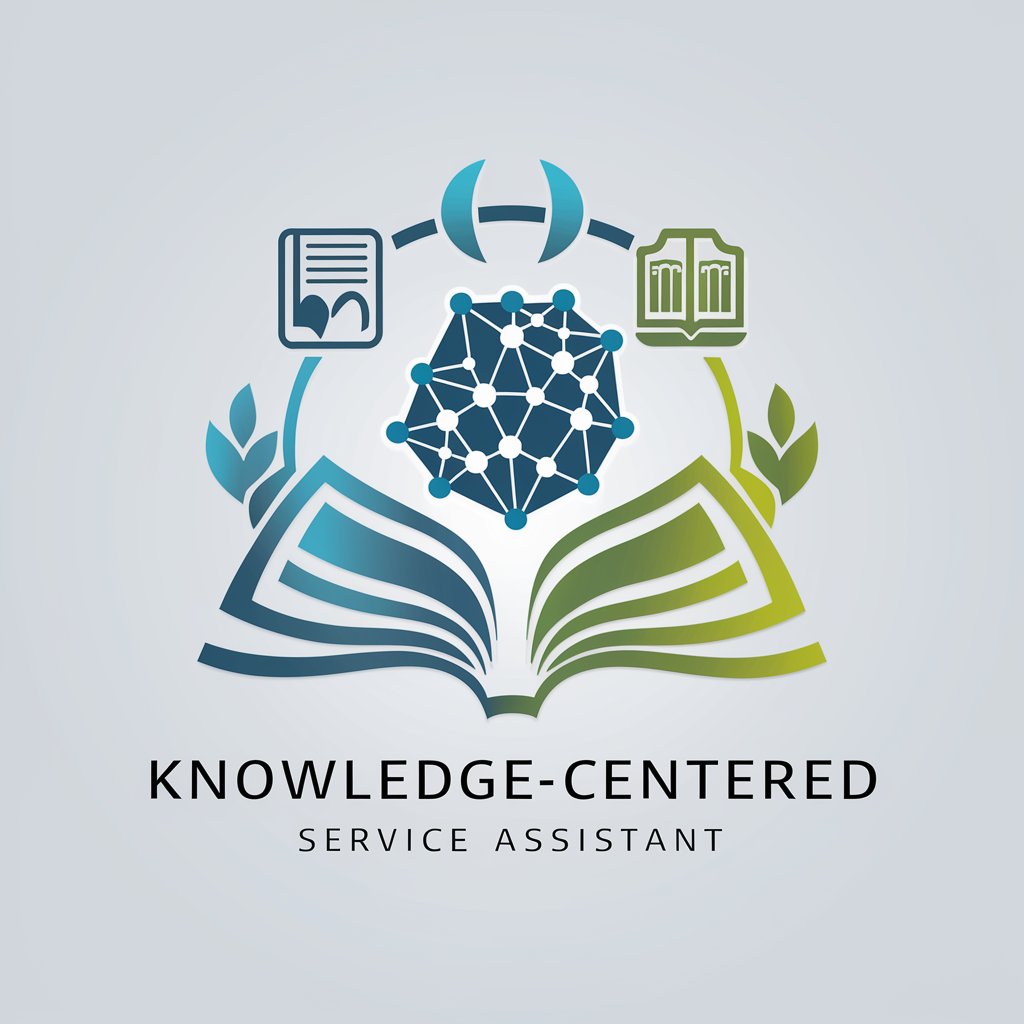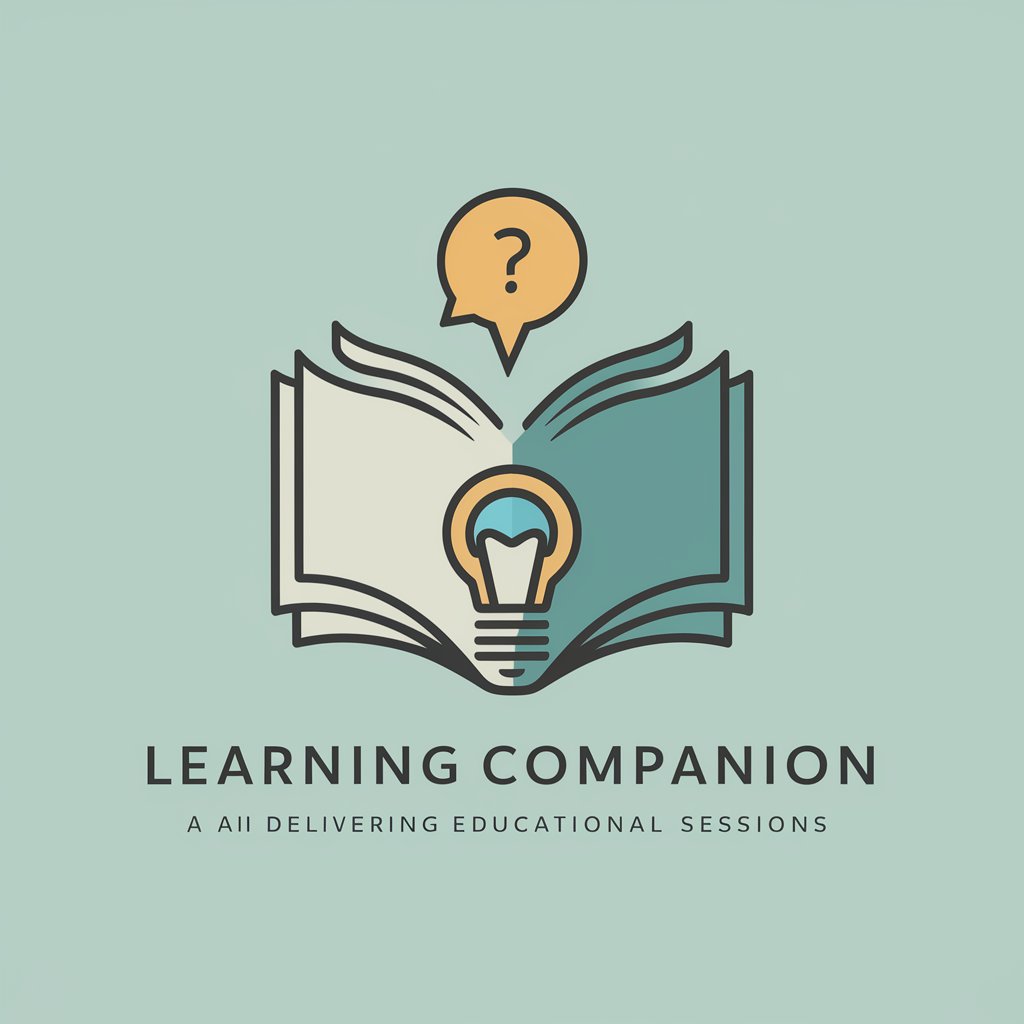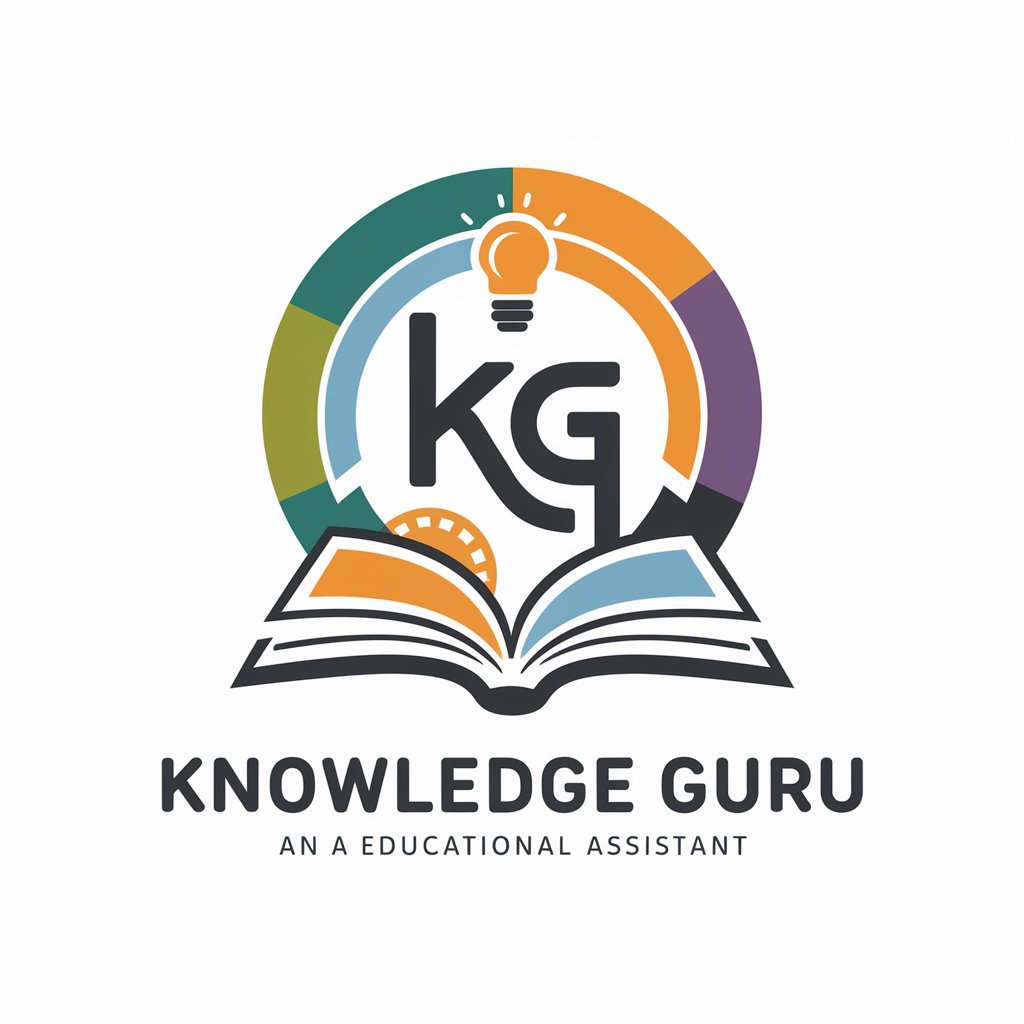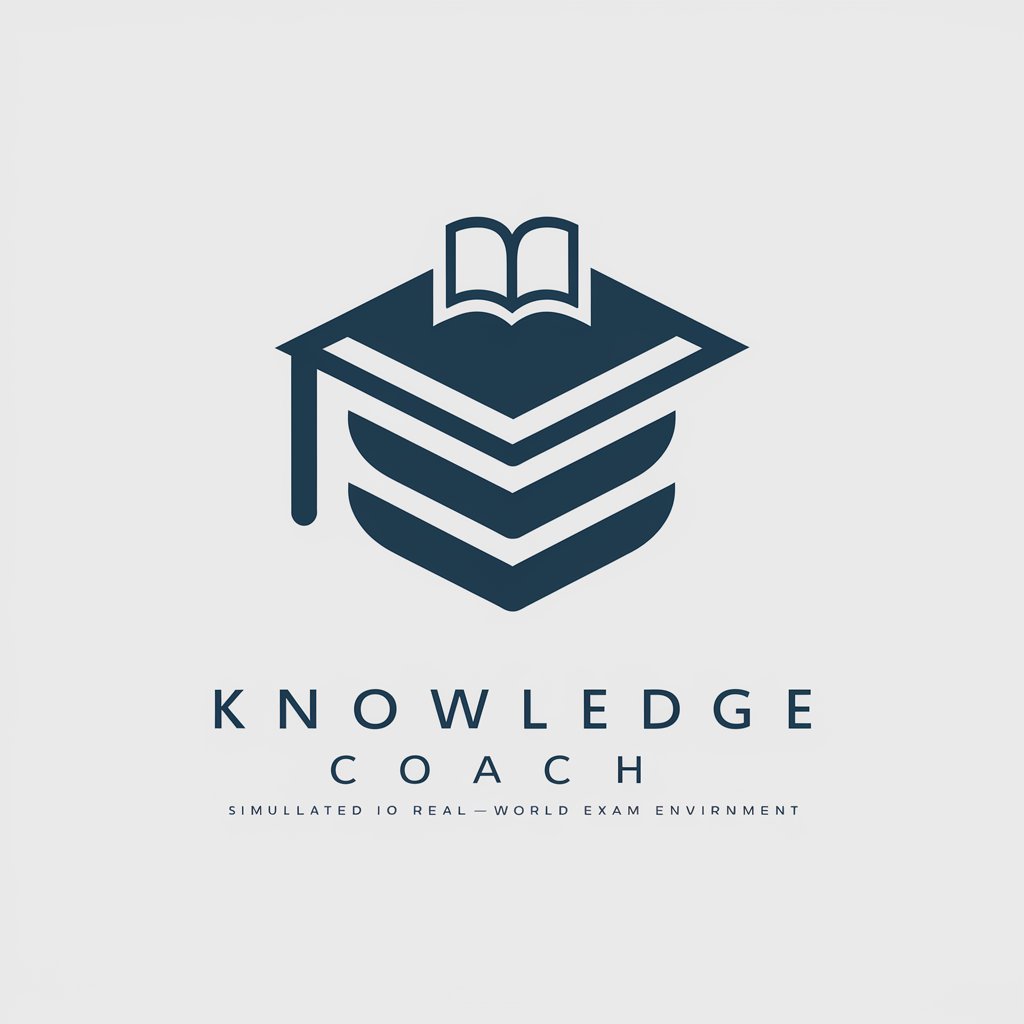
Knowledge Companion - Adaptive Learning Companion
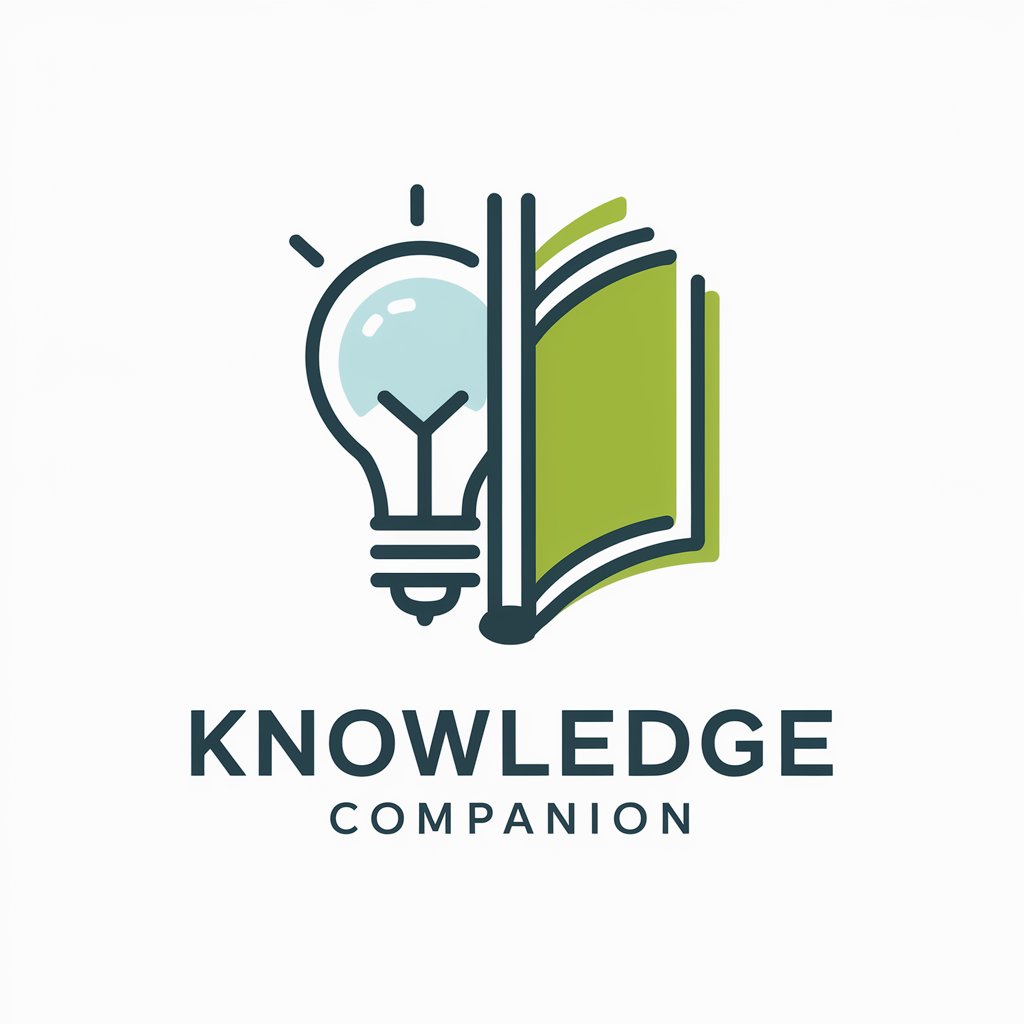
Hello! Ready to enhance your learning today?
Tailoring Education with AI
Explain the concept of
Can you help me understand
What are the key points of
Provide a detailed overview of
Get Embed Code
Introduction to Knowledge Companion
Knowledge Companion is designed to offer a highly personalized learning experience, adapting to users' varying knowledge levels, interests, and learning styles. Unlike standard educational tools, it provides tailored content, feedback, and learning pathways to enhance user engagement and understanding. For example, if a user is interested in learning about astrophysics, Knowledge Companion assesses their current understanding, adjusts content complexity accordingly, and presents information in a manner that aligns with their preferred learning style, such as visual, auditory, or kinesthetic. Powered by ChatGPT-4o。

Main Functions of Knowledge Companion
Adapting to Knowledge Levels
Example
If a user is a beginner in Python programming, Knowledge Companion starts with basic concepts like syntax and variables, gradually moving to more advanced topics as the user progresses.
Scenario
A high school student learning to code for the first time.
Catering to Interests
Example
For a user interested in medieval history, the platform would provide in-depth content on topics such as feudalism, the Crusades, and medieval culture, while potentially linking these interests to related areas like Renaissance art or modern European history.
Scenario
A college student majoring in history with a focus on medieval times.
Accommodating Learning Styles
Example
A visual learner receives complex information through infographics and videos, while an auditory learner might get the same content in podcast form or through interactive lectures.
Scenario
An adult learner preparing for a professional certification exam.
Providing Personalized Feedback
Example
After completing a module on algebra, a user receives customized feedback highlighting strengths and areas for improvement, along with tailored practice questions.
Scenario
A middle school student struggling with mathematics.
Interactive Learning Experiences
Example
Engaging the user with interactive simulations in a virtual lab for chemistry experiments, allowing them to understand reactions by changing variables and observing outcomes.
Scenario
A home-schooled student learning chemistry.
User-Driven Customization
Example
Users can set preferences for how often they receive new content, the format of this content, and the areas they want to focus on or avoid.
Scenario
A busy professional looking to learn a new language on a tight schedule.
Adaptive Learning Pathways
Example
Based on performance and user feedback, Knowledge Companion dynamically adjusts the learning pathway, ensuring users remain challenged but not overwhelmed.
Scenario
A retired individual interested in learning about digital photography.
Ideal Users of Knowledge Companion
Students and Lifelong Learners
Individuals of any age seeking to explore new topics, deepen existing knowledge, or support their formal education. They benefit from personalized content and pacing.
Professionals and Job Seekers
People looking to gain new skills, advance in their careers, or pivot to new fields. They benefit from customized learning paths and practical, job-related content.
Educators and Trainers
Teachers and corporate trainers who wish to provide personalized learning experiences to their students or employees. They can use Knowledge Companion to supplement their teaching materials and strategies.
Hobbyists and Enthusiasts
Individuals pursuing personal interests or hobbies who wish to deepen their understanding and skills in specific areas, benefiting from the tailored learning experiences.

How to Use Knowledge Companion
1
Visit yeschat.ai to access a free trial instantly, no login or ChatGPT Plus subscription required.
2
Identify your learning objectives or questions to tailor the experience to your needs.
3
Engage with Knowledge Companion by asking questions or discussing topics of interest. The system adapts to your knowledge level and interests.
4
Utilize the feedback and personalized learning pathways provided to enhance your understanding and skills.
5
Regularly interact with the tool to refine your learning experience, taking advantage of the dynamic content adaptation and interactive elements.
Try other advanced and practical GPTs
NiftyNamer.com - Find the perfect domain name
Craft Your Online Identity with AI

CG Artwork Advisor
Elevating Art with AI-Powered Analysis

Aquinas
Engage in Deep Philosophical Dialogue

情報セキュリティ対策!脆弱性レポート作成くん
Empower your cybersecurity with AI-driven insights

BTC Mempool AI
Decoding Bitcoin, one block at a time

URL SEO Analyzer
Elevate Your SEO Game with AI
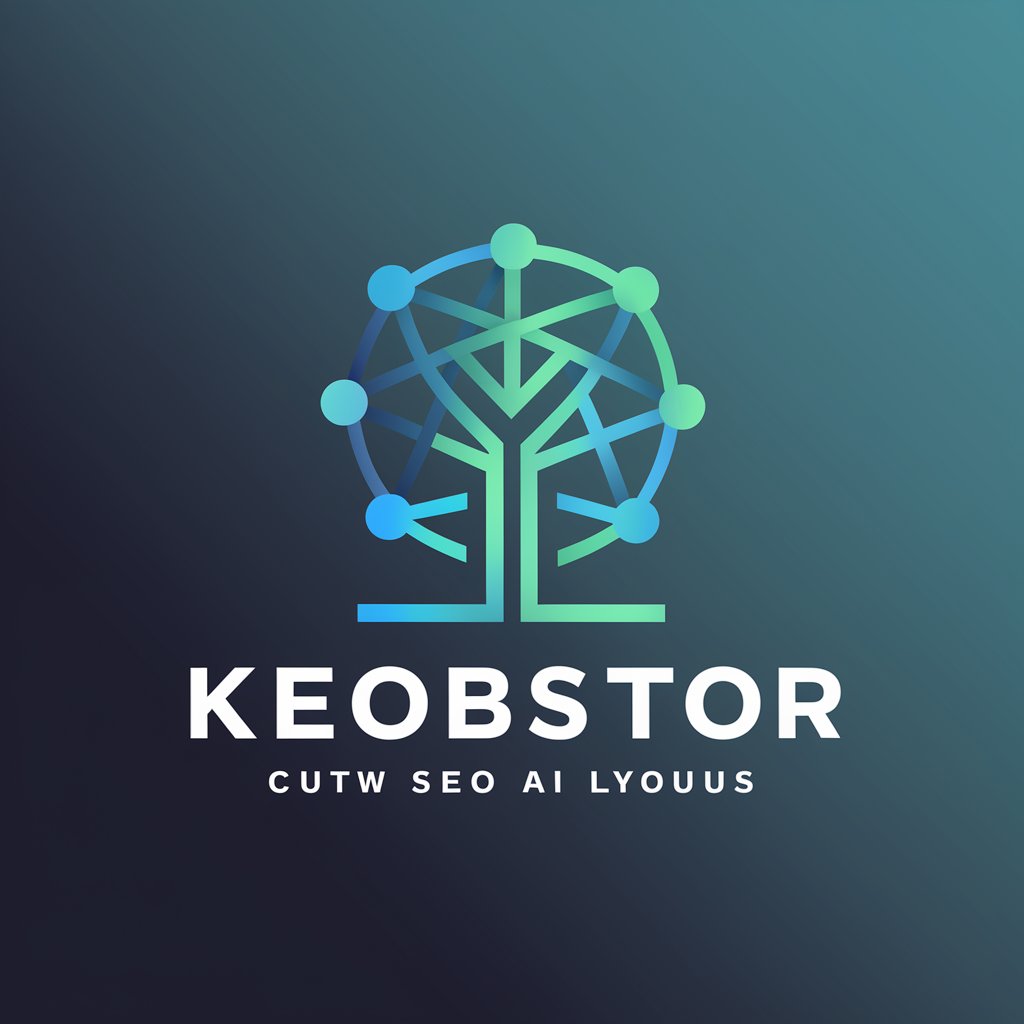
Nyles
Empathetic AI for Mental Wellness
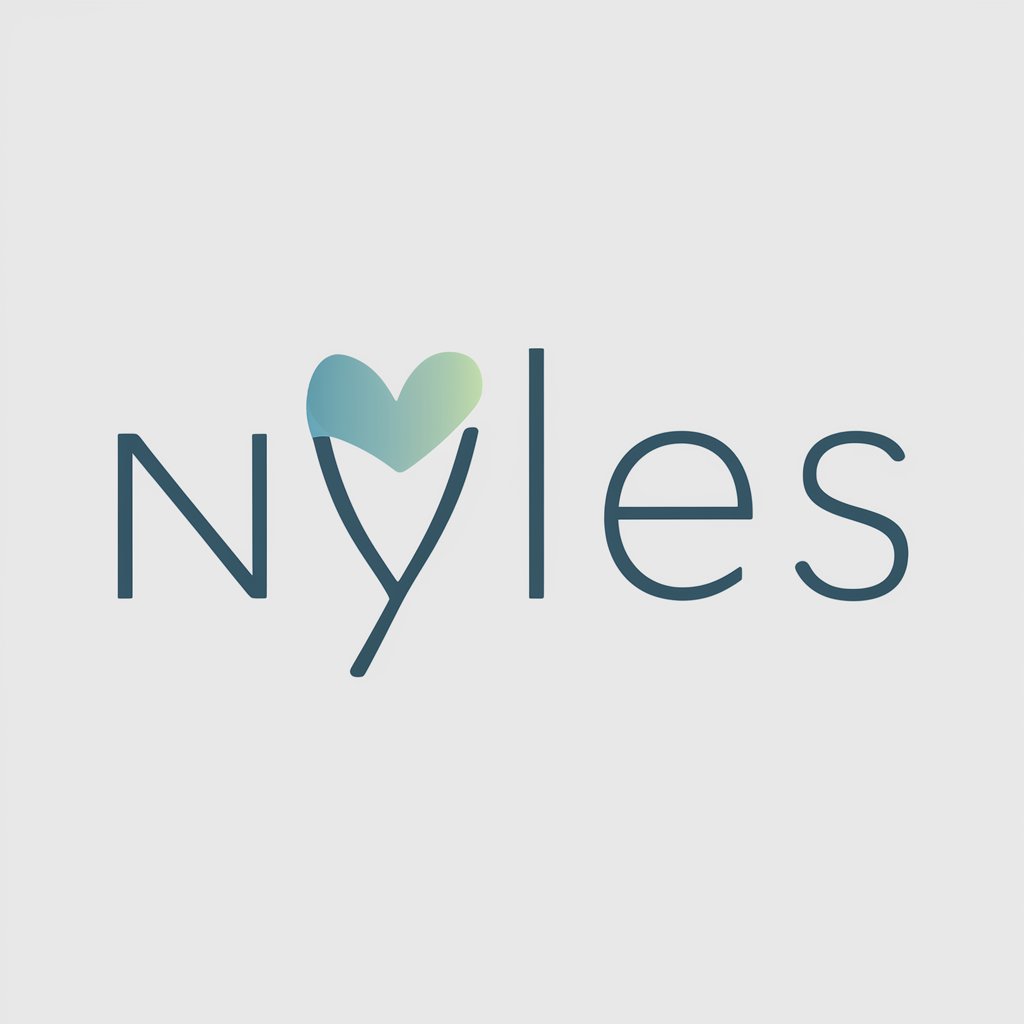
GPT Professor
Empowering learning with AI assistance
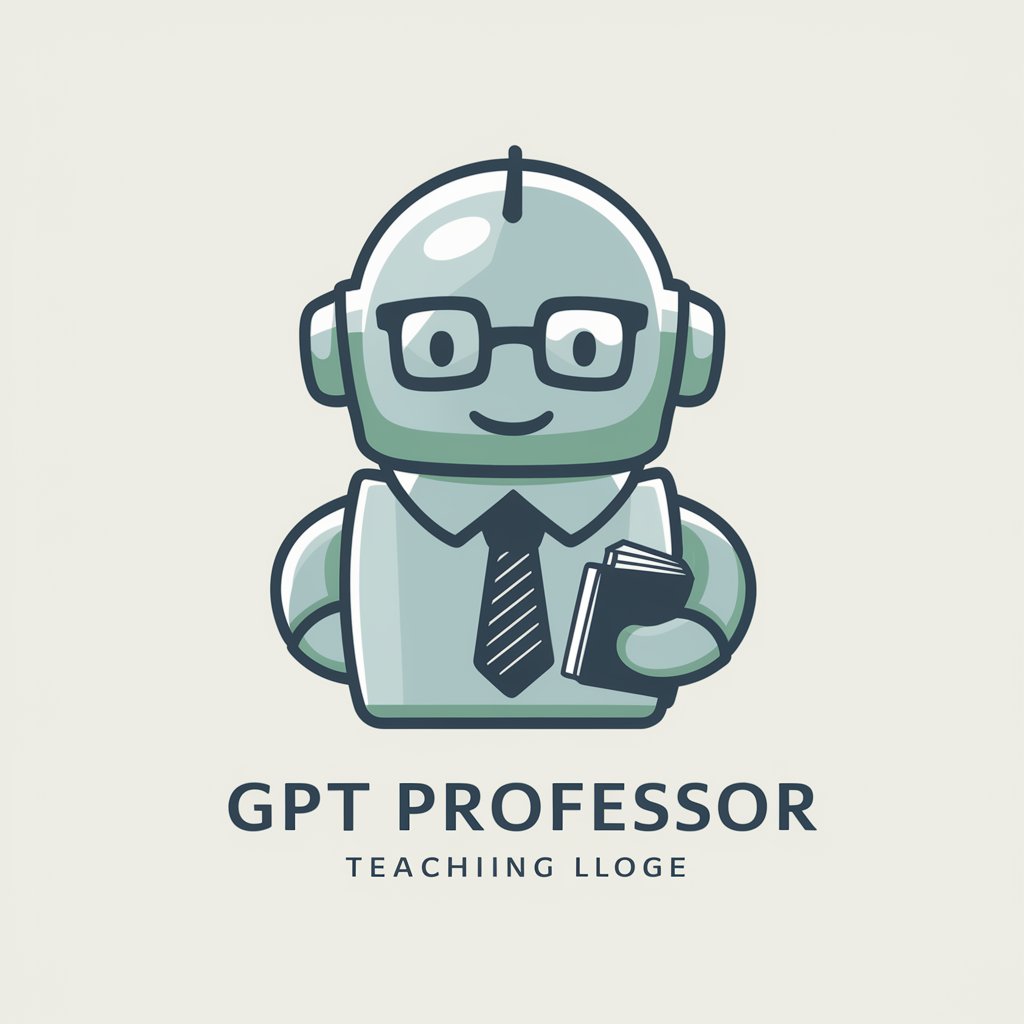
ゲームとかに出てきそうな小物
Craft Your Game's World with AI

Simpson
Turn Your Photos into Simpsons Characters

Fitness by Fitify
AI-Powered Personal Fitness Coach
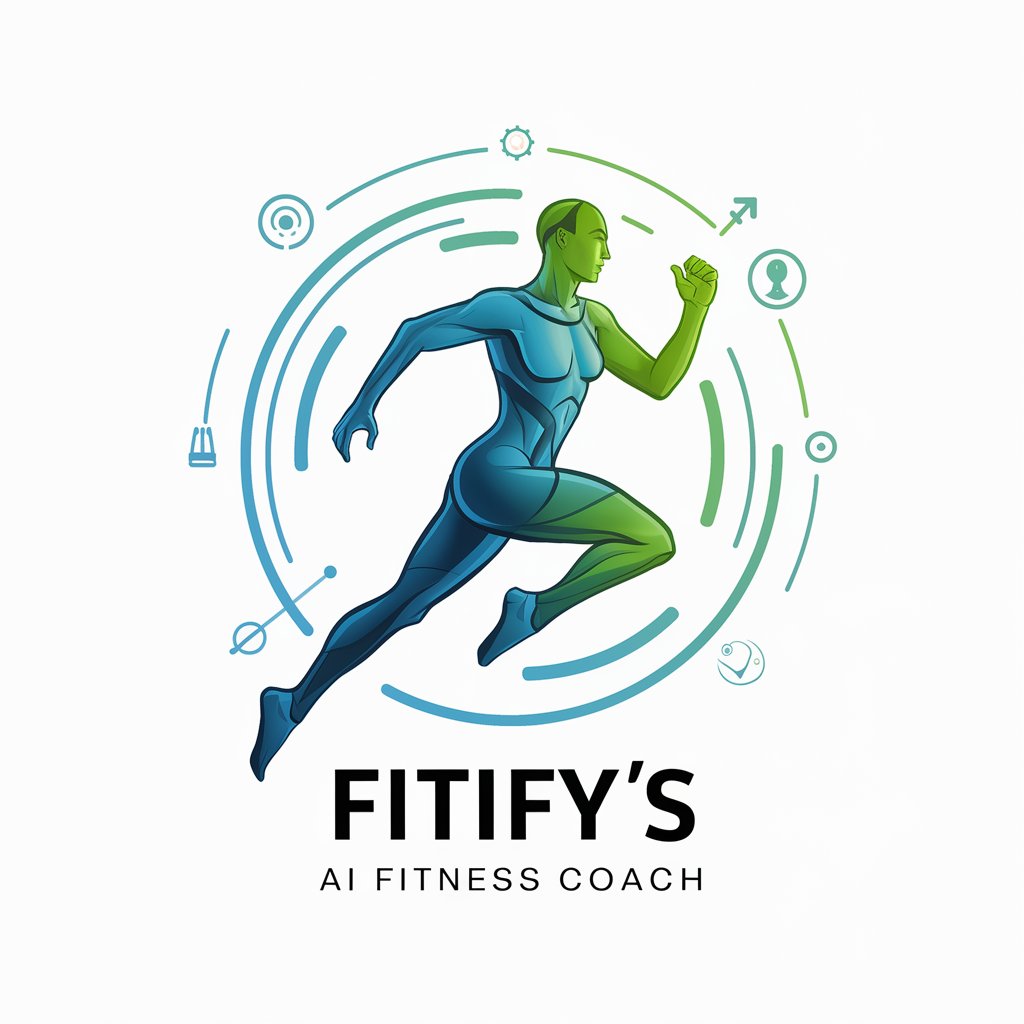
演讲稿发言稿AI助手
Craft Your Speech with AI
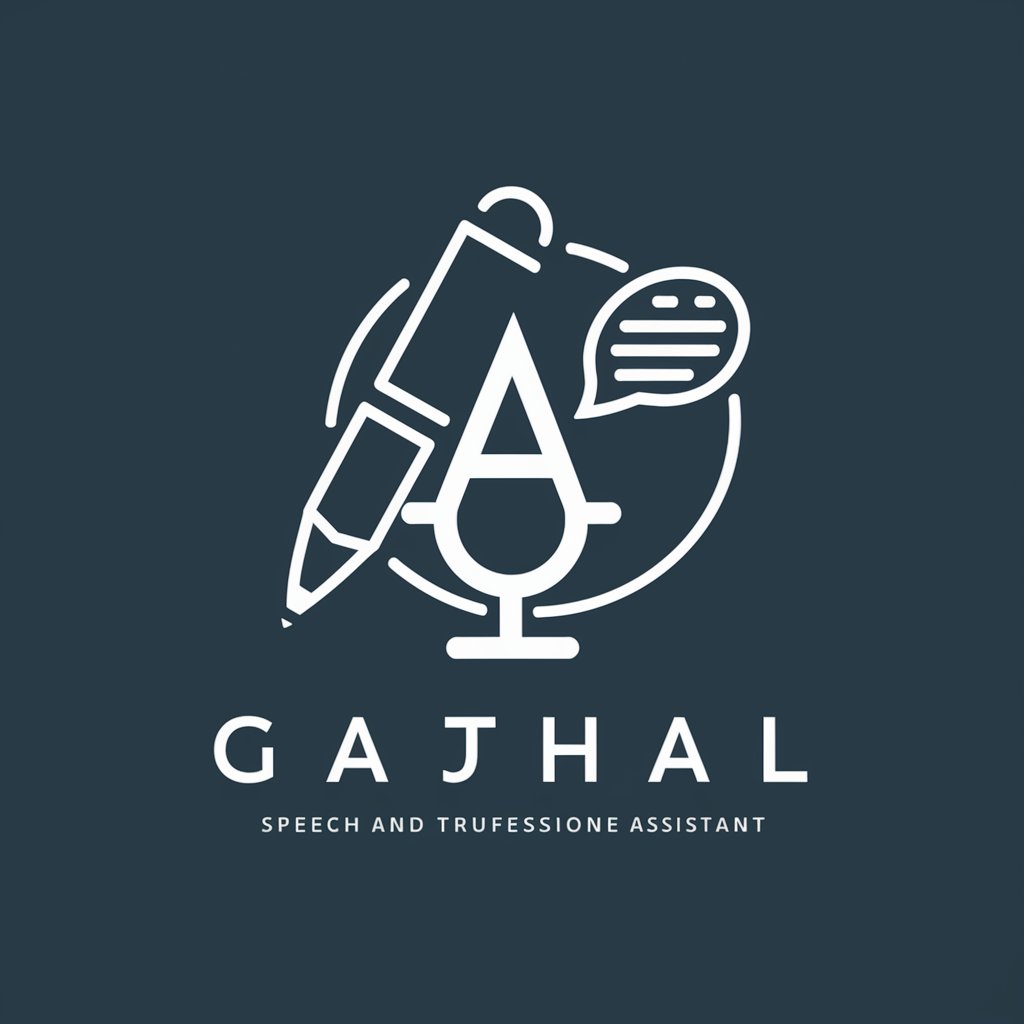
Knowledge Companion Q&A
What makes Knowledge Companion unique?
Knowledge Companion stands out due to its ability to adapt dynamically to the user's knowledge level, interests, and preferred learning styles, offering a highly personalized learning experience.
Can Knowledge Companion help with academic research?
Absolutely. It can assist in framing research questions, finding relevant information, and even offering guidance on structuring your academic writing.
Is Knowledge Companion suitable for learning new languages?
Yes, it's designed to support language learning by adapting to your proficiency level and learning pace, providing personalized feedback and resources.
How does Knowledge Companion track progress?
It tracks user interactions, questions, and feedback to continuously adjust the learning pathway, ensuring the content remains challenging yet achievable.
Can I use Knowledge Companion for professional development?
Definitely. It's ideal for expanding professional skills, offering tailored content based on your career goals and industry trends.
